For a person who probably travelled more chauffeur-driven miles in her lifetime than anyone else on earth, our late monarch had an uncommon urge to take the wheel herself.
Her views on the cars in her long motoring life are not recorded. There could never be anything so vulgar as an endorsement, or a denigration. And anyway, Queen Elizabeth II was always happy to take the rough with the smooth, rattling along in the most rugged 4x4s or zipping about in leather-lined luxury.

The Range Rover in its successive iterations is the vehicle that seemed to suit her needs best. With three vast estates dotted about the country, the go-anywhere Rangie ticked every possible box, sometimes alive with Corgis, and at others with foreign royalty in the passenger seats (such as Saudi Arabia’s King Abdullah in 1998), open-mouthed as she romped through the Balmoral countryside, pointing out favourite beauty spots. Even David Cameron, one of the 15 assorted prime ministers who’ve come and gone during her long reign, was alarmed at the Queen’s “breakneck speed” as she showed him round, according to his autobiography For The Record.
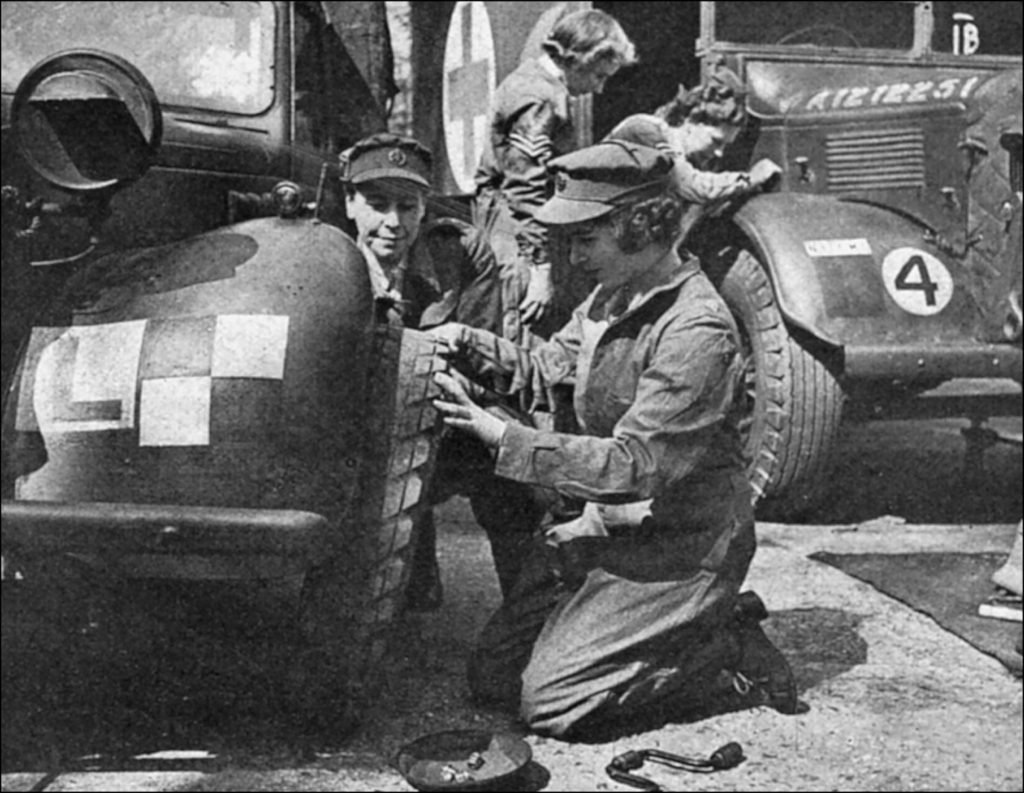
It may come as a bit of a surprise, then, to recall that the Queen never took a driving test and didn’t possess a licence. There was no need to. British driving licences were ultimately issued in her name, so engaging in any DVLC paperwork would have been farcical. Nor does the monarch’s car need any number plates on the highway, another unique concession.
Princess Elizabeth entered the Second World War as a 13-year old girl and ended it as a proficient 18-year old mechanic. Showing the quiet determination that would characterise her in later life, she insisted on doing her bit, and to that end she was enrolled in 1944 in the British Army, in the Auxiliary Territorial Service. To the quiet admiration of her parents, she learned how to drive heavy army lorries, and about what went on under the bonnet.
She could analyse and fix problems on recalcitrant engines, change wheels, assess roadworthiness and, of course, negotiate and reverse cumbersome Bedfords where even some men might have got jittery. No wonder, then, that the Queen was more than at home behind the wheels of the numerous Land Rover Series models and Defenders kept on Royal land.
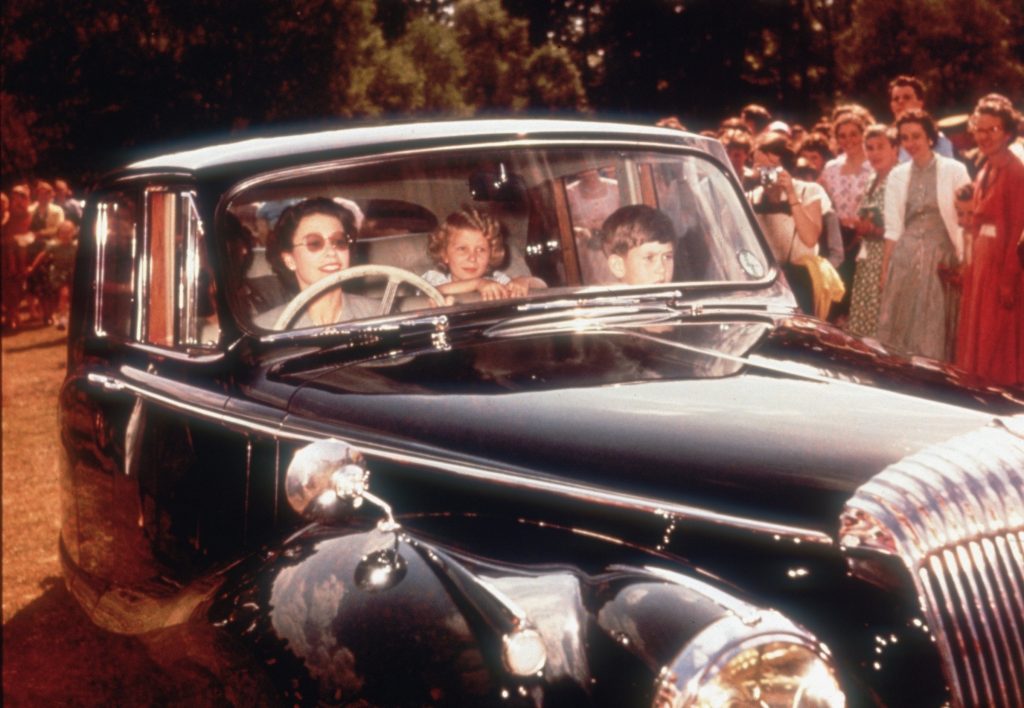
The Women’s Auxiliary Air Force had a flick through The Autocar and chose a Daimler DE27 for the young princess and her fiancé as a wedding present in 1948. Daimlers were the marque of choice for the Royal Family in those days – they took delivery of 80 examples in total – and after her Coronation in 1953 Elizabeth II would often drive her young children Charles and Anne around the Windsor area in a Hooper-bodied Regency Empress, when she wasn’t in the rear compartment of one of the larger Daimler limousines stabled at the Mews at Buckingham Palace.
Only after a tax scandal involving Daimler’s chairman did Royal patronage start to shift discreetly towards Rolls-Royce. The first was a Phantom IV in 1954, followed in 1961 by the latest Phantom V. This 3-ton behemoth really did travel the world with the Queen on her regular commonwealth tours and visits: it had its very own garage aboard the Royal Yacht Britannia, into which it could be eased once the bumpers were removed, and it was in active service right up to 2002 when the craft was decommissioned.
While the Queen could often be seen on the TV evening news waving from the back of various specially converted, open-topped ceremonial cars, when at home at Sandringham she preferred the use of a proper estate car. In a little-known car museum in a stable block at the Norfolk country seat, you can still see the specially-designed Ford Zephyr MkII with its somewhat hearse-like contours that took the Queen, Prince Philip and their guests on many a shooting party.
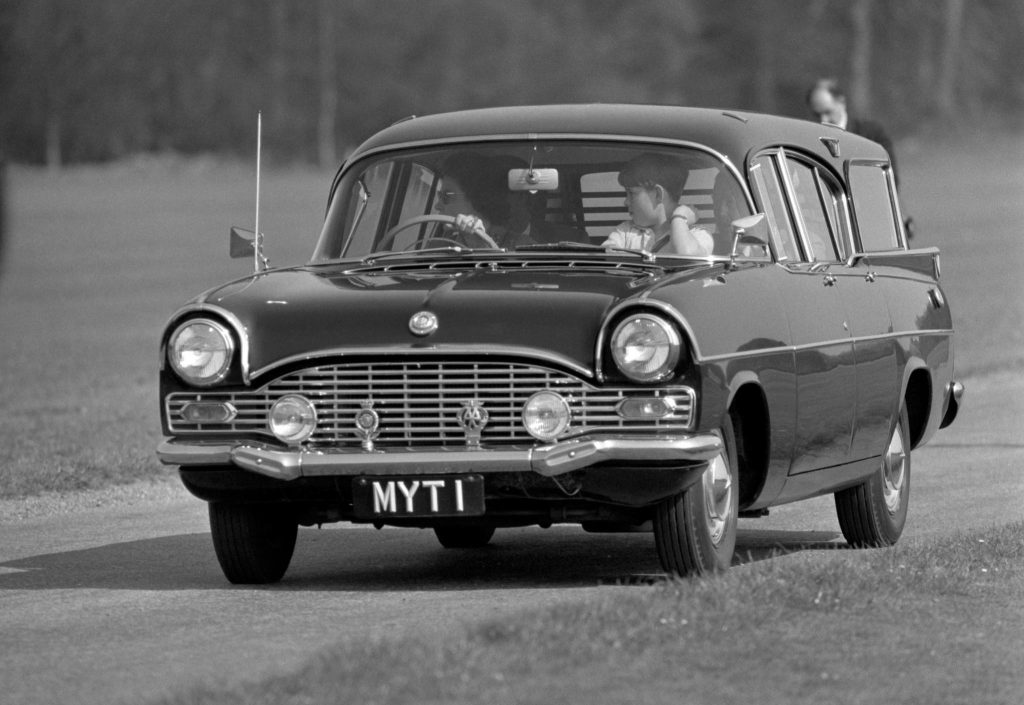
Unlikely as it seems, though, the Queen then switched allegiance to Vauxhall and seemed to revel in her PA and PC Cresta estates. The PA is still there at Sandringham, complete with its tongue-in-cheek number plate: MYT 1.
Her Majesty no doubt agreed with her husband that a car made an excellent 21st birthday present for their children. They gave Prince Charles an MGC, and Princess Anne a Reliant Scimitar GTE. For her own use in and around Windsor, however, the Queen was drawn towards Rovers. At first it was a P5 3-litre before moving to what is thought to have been one of her all-time favourites, a P5B 3.5 saloon.
When British Leyland rather thoughtlessly stopped making those, she moved over to Jaguars and Daimlers, apparently racking up 12,000 miles in one Daimler Double Six Series III that had a plump cushion in place of a back seat for those pampered, yappy Welsh dogs to sit on. Even as recently as earlier this year Queen Elizabeth was spotted in Windsor in a smart, green Jaguar X-Type estate, sporting her distinctive version of a racing helmet – a headscarf knotted under the chin.
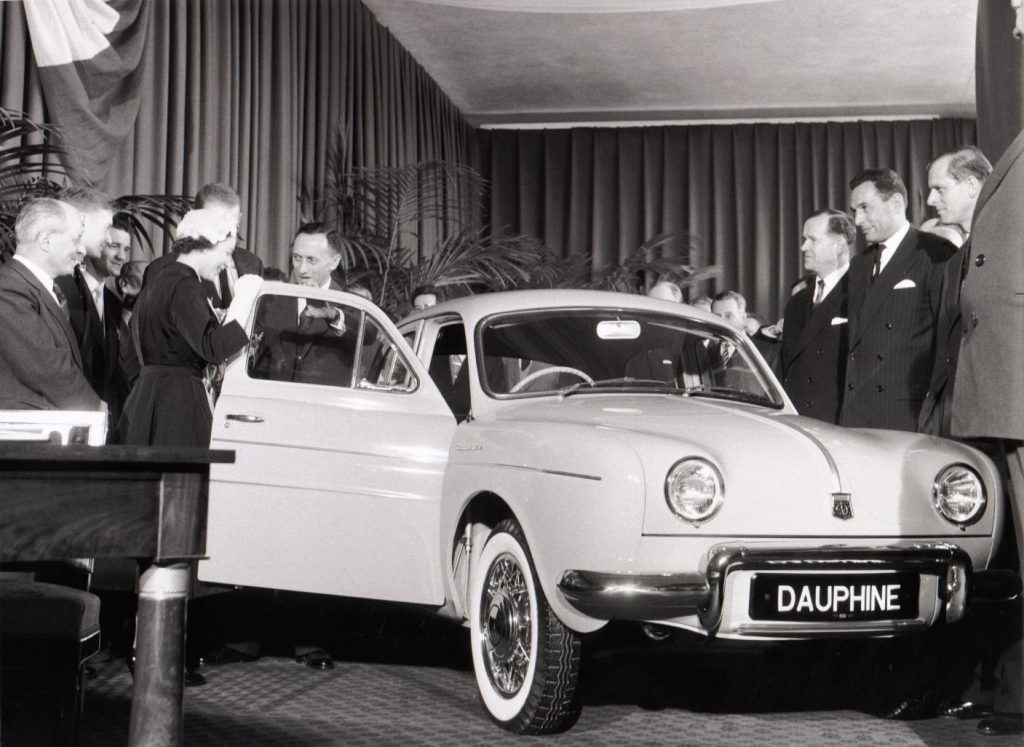
It’s very likely that the Queen well understood what went into making great British cars. She was patron of the Royal Automobile Club where, on Thursday evening, car talk stopped and heads were bowed in silence on the announcement of her passing.
In 1956, she paid her first visit to a car factory with Prince Philip when they toured Jaguar’s bustling HQ in Coventry, and in 1957 she accepted the gift of a light blue Renault Dauphine on a visit to Renault’s British assembly plant in Acton, west London. In 2014 she opened Jaguar’s new engine plant in Wolverhampton.
Meanwhile, back in 2002, on the occasion of the golden jubilee of her reign, Queen Elizabeth was fully involved in creating the Bentley State limousine that would carry her on official duties for the next 20 years.
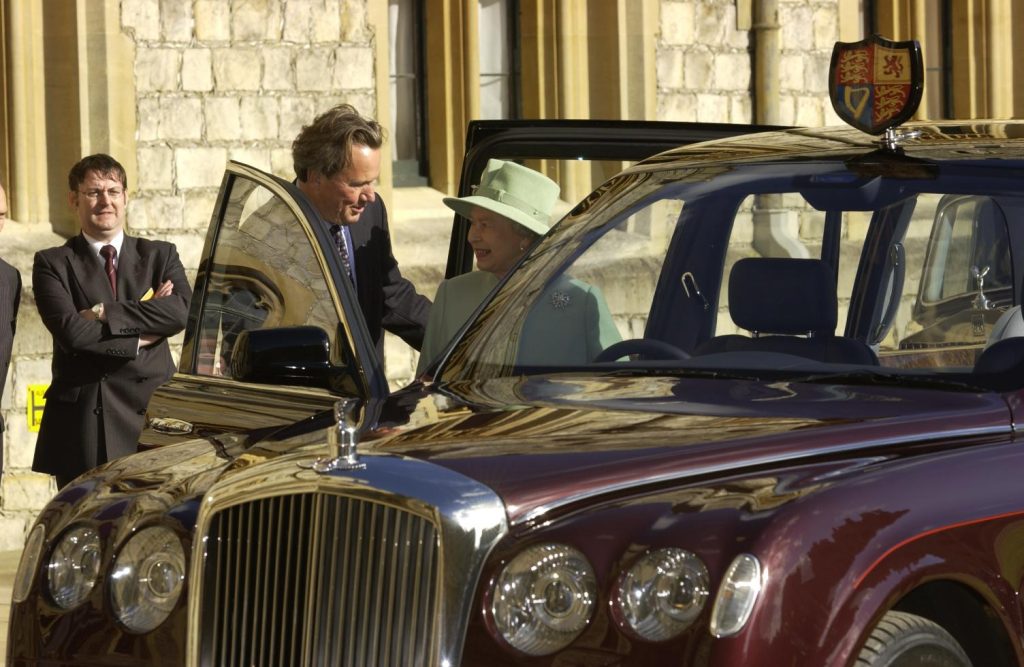
Her innate good taste came to bear in requesting the minimum of flashy external chrome and comfortable, rather than opulent, trim and upholstery, with soft cloth and not sticky leather, and wide-opening doors cut into the roof of the body allowing her to stand fully upright when disembarking.
The colour scheme chosen was black-over-Royal Claret paintwork with red coachlines, a livery originated in 1902 on the Daimler Tonneau of her grandfather Edward VII. Car traditions, like so many others, were very important to her.
And yet, on the other hand, British car innovations intrigued the Queen. Alec Issigonis was a friend of her brother-in-law Lord Snowdon and just after the revolutionary little runabout was launched, it’s said that Issigonis took a factory-fresh Mini to Windsor Great Park so that a certain rather keen driver could have a spirited turn at the wheel…
Read more
Tributes to Her Majesty The Queen, Elizabeth II 1926 – 2022
Prince Philip the driver and rider, pilot and mischief maker
The Hagerty Power List 2022: Royalty
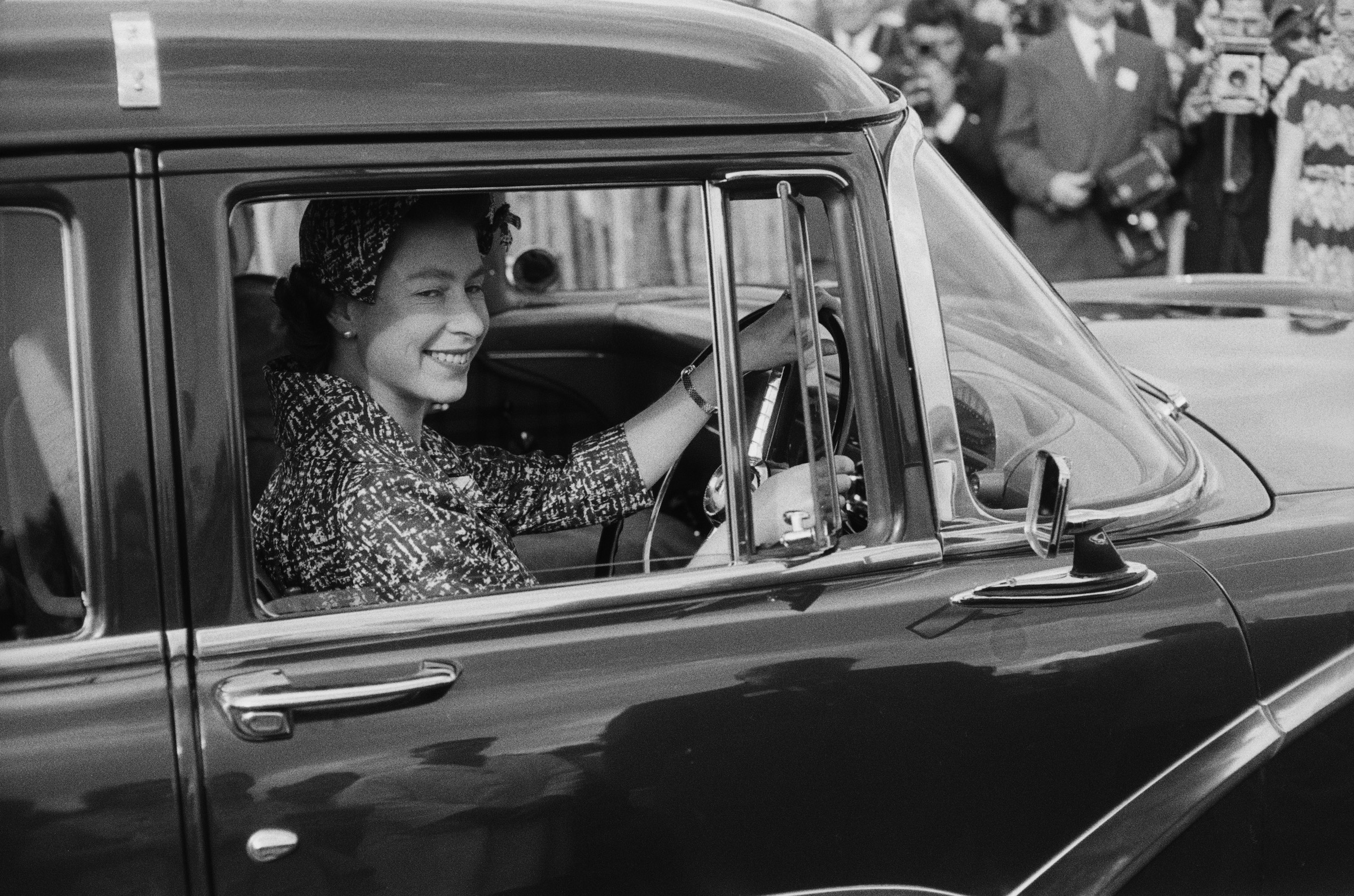
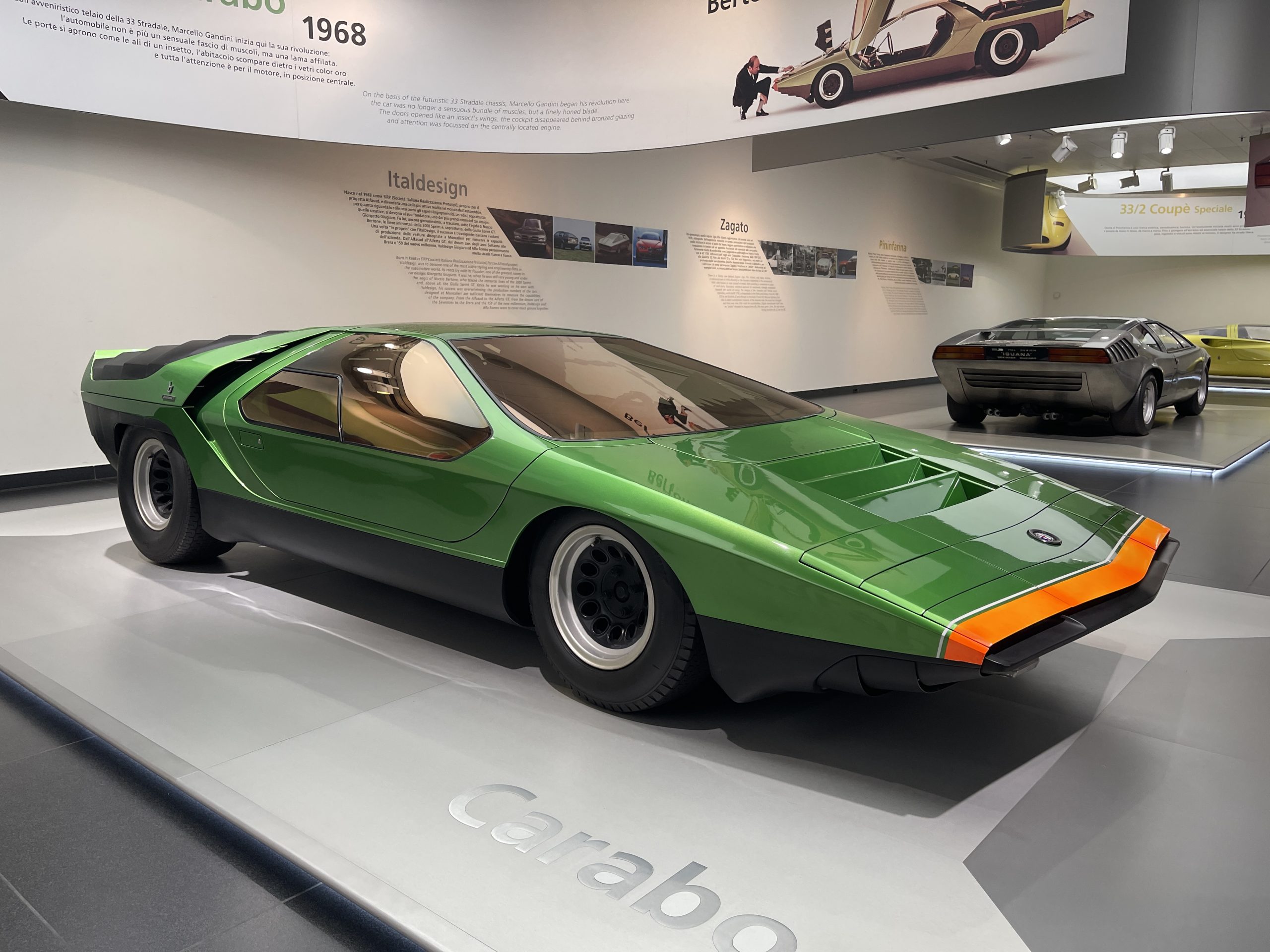

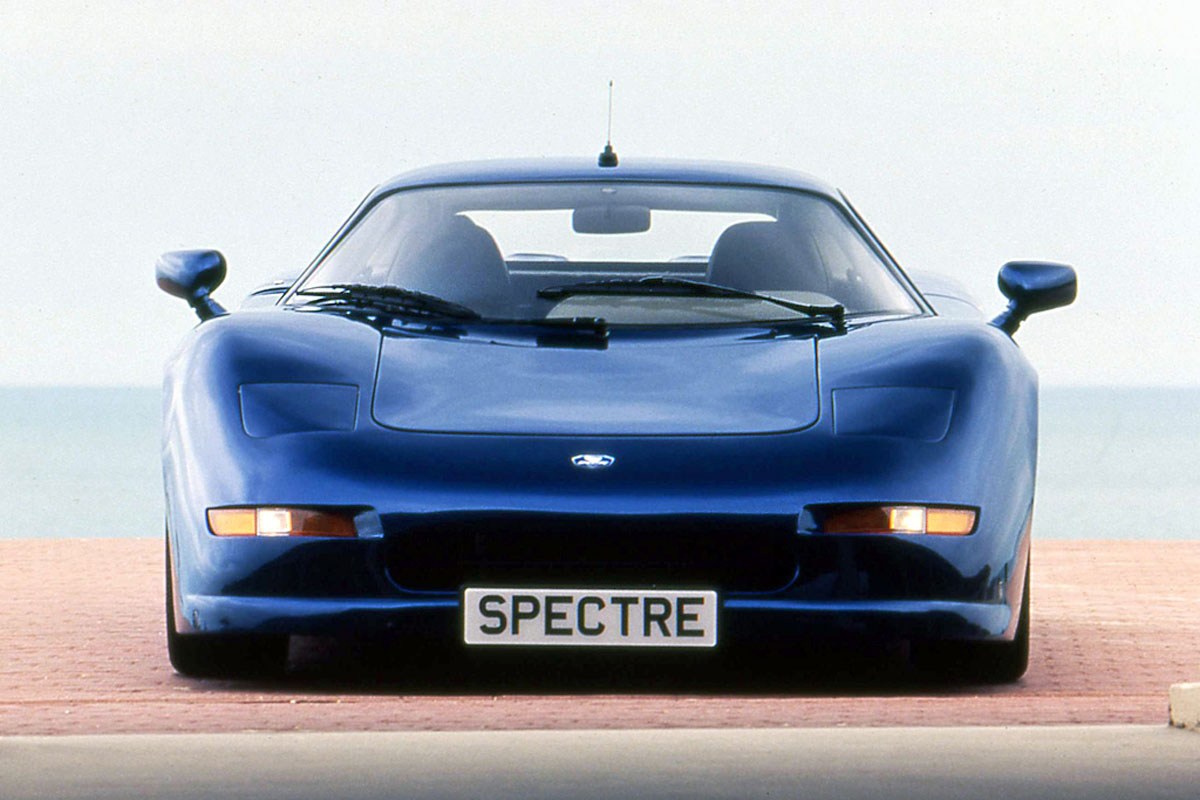
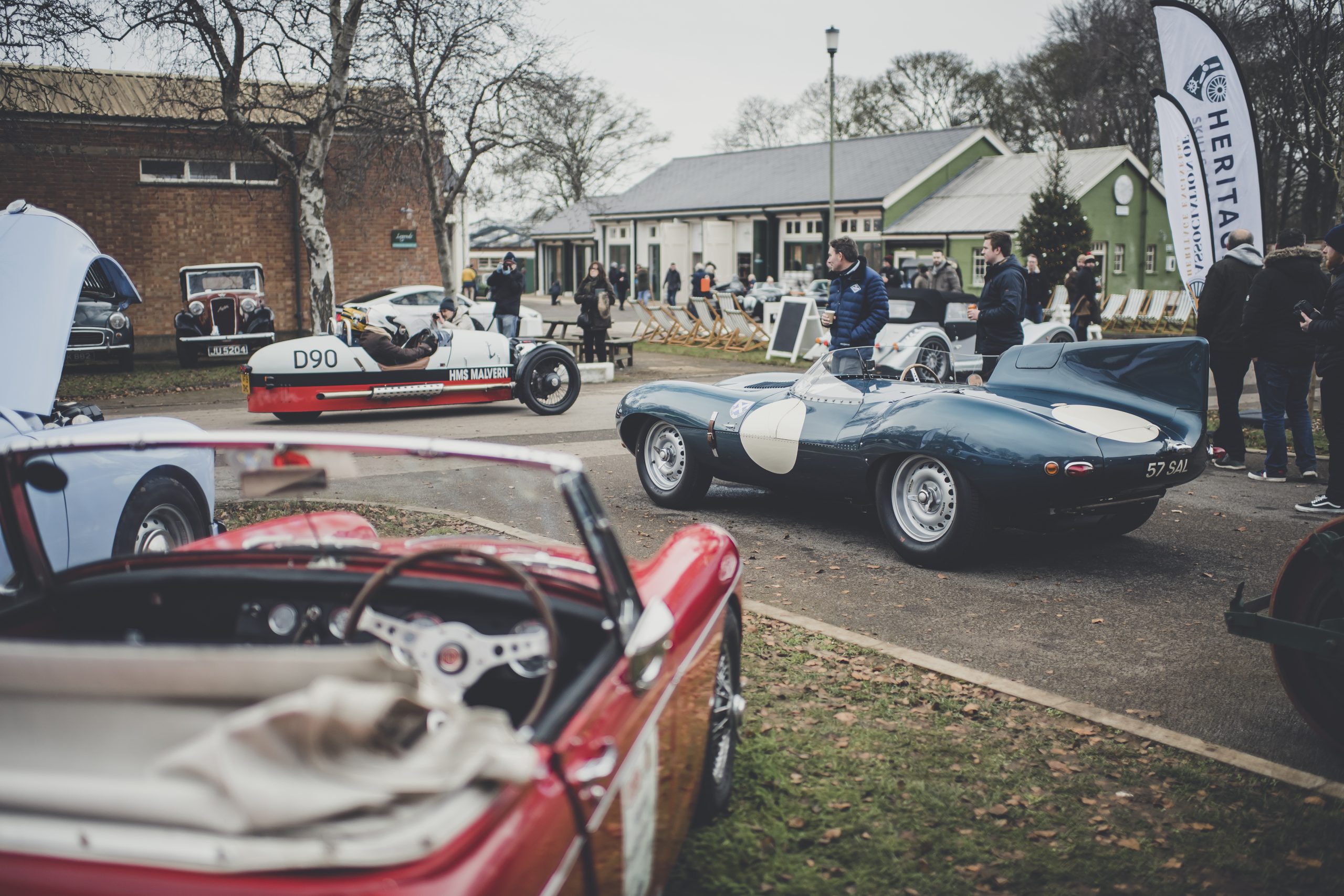
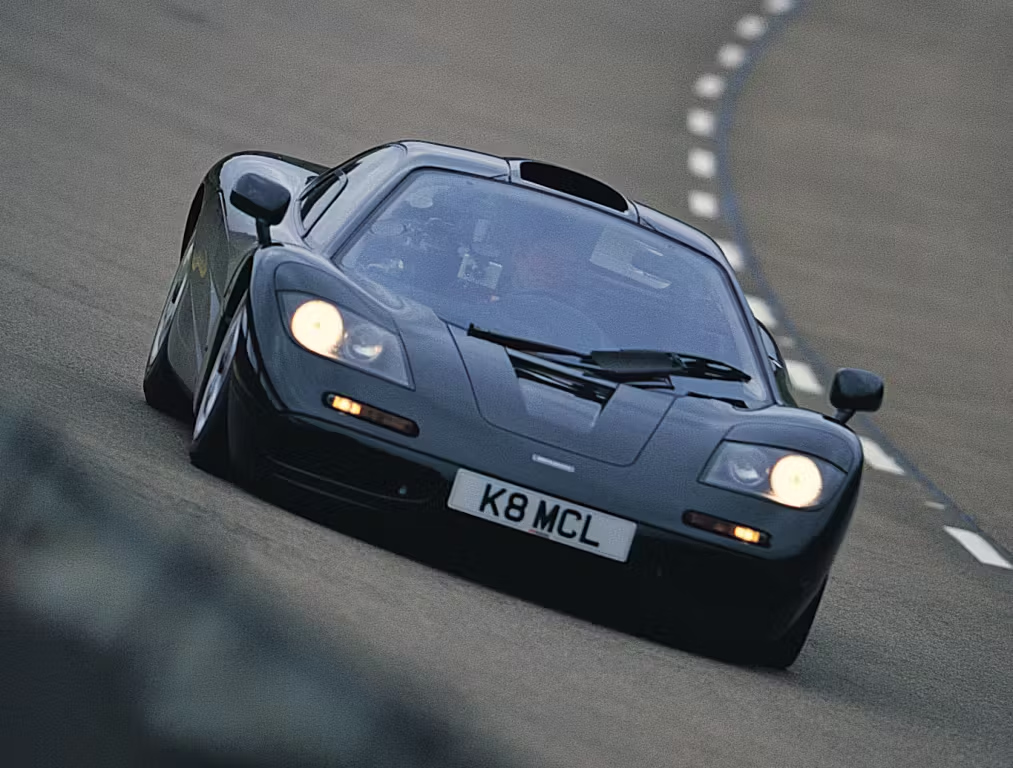

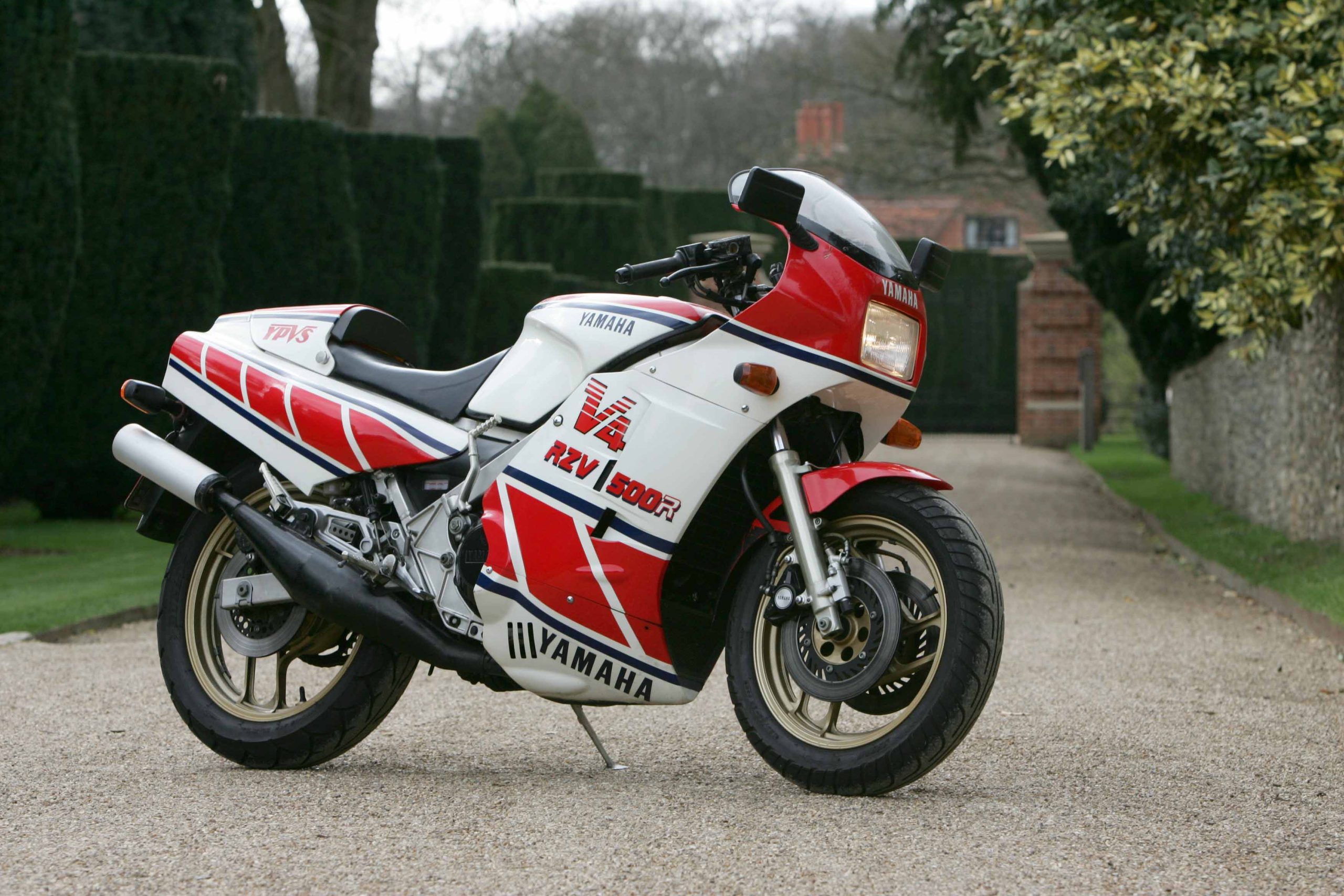
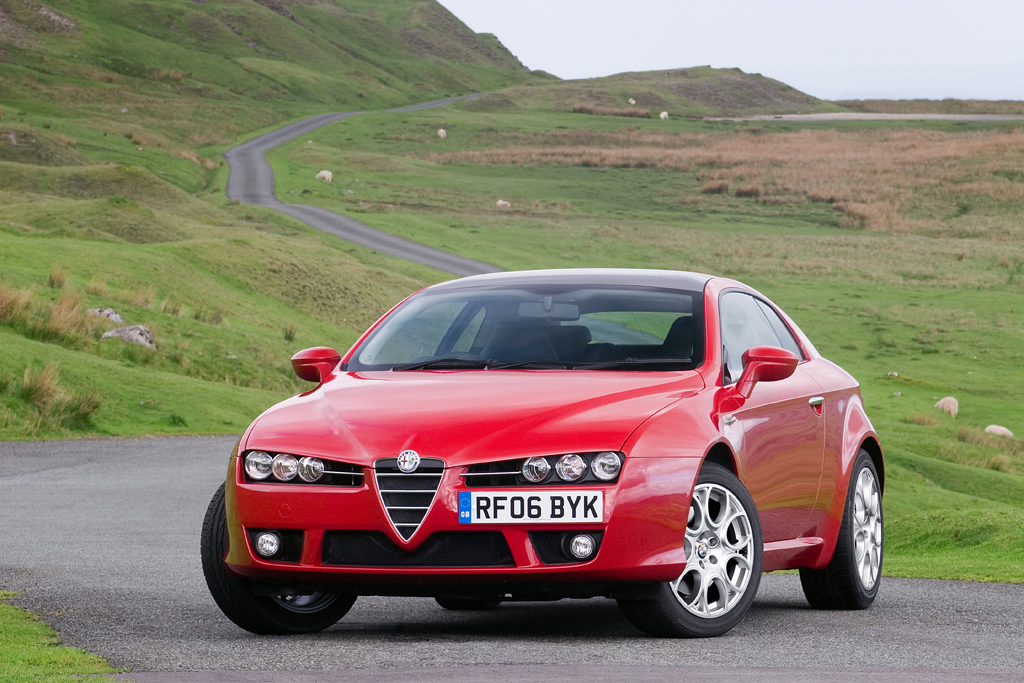
What a woman. Glamorous and capable, a truly liberated lady despite the strictures of her life.
First picture shows Her Majesty at the wheel of a right hand drive 1955/56 Ford Sedan, (if picture taken in Canada, it would be badged as a Meteor, as all Canadian built Fords were designated).
What an incredible Monarch, what an incredible person was Her Majesty Queen Elizabeth II. The world is so much poorer without her.
A fabulous piece, beautifully written, well done Hagerty. A fitting motor-themed tribute to the Queen.
My friend recently had the honour of restoring Her Majesty’s Green, Vauxhall Viceroy Estate – complete with hard wearing grey vinyl ‘wash-down’ interior – practical & long-lasting…much like the good lady herself!
God Bless The Queen…
God Save The King.
Volvo , and ,,,, defender , Range Rover to say a few that’s missing get a more accurate list please !
It doesn’t claim to be an exhaustive, definitive list. Just the highlights.
What a loss for us all , never will be forgotten . RIP
Many years ago driving near Sandringham, coming towards me a dark green Ford Granada Estate, lady driver ,head scarf and sun glasses, I slowed due to parked car, and a hand was raised in thanks , made my day Your Majesty.
The nation hasn’t just lost the Queen it’s lost the Nation’s very own mum, she was renouned for her love of motors horses and dogs .
R.I.P Queen Elizabeth the 2nd.
What happened to Prince Phillip’s MG TC ?
There don’t appear to be any pictures of it.
Hello Chris, do you mean in this list, or more generally? If the former you may have answered your own question, since this article covers the cars of Queen Elizabeth II, not those of Prince Philip.
That’s a really nice tribute to our late Queen. Thank you Hagerty for responding in this way.
R.I.P. Your Majesty. God Save the King!
Check out MYT 1 on the Check my MOT site. Strange!
As an apprentice at Rolls Royce, I learned to drive on the Phantom IV given to Prince Phillip & Princess Elizabeth by the Royal Air Forcé Benevolent Society as a wedding present.
I noticed on the TV need that the the MYT1 registration plate is now on a royal Range Rover. It followed the cortège from Northolt to Buck House and had the Royal crest mounted in the roof.
The Vauxhall Cresta Estate you picture has the registration number MYT 1 or MYT I. I noticed on the BBC News last night that one of the black Range Rovers in the cortège had that number. I assume it’s been transferred from the Cresta Estate
Incidentally, if you do that online tax/MOT search against MYT 1 and MYT I it says the registration numbers are invalid
I noticed that too @Giles Whiting – and further back in the funeral cortège there another identical Royal-crested Range Rover with the reg MYT2 – someone has a sense of humour me thinks!
Wonder if MYT 2 was Philip’s?
Lovely piece Giles, thank you. As others have pointed out two range rovers in the funeral cortége had the plates MYT 1 and MYT 2, What does the ‘MYT’ mean? Thanks again
God Bless the Queen! God save the King! 🇬🇧
Excuse my ignorance but can someone please tell me what
MYT stand for
Many thanks
It is believed that Prince Philip, Duke of Edinburgh, chose the registrations. Some have speculated that it refers – lightly – to Mighty One.
Just a thought, could it relate to the aristocratic family the Myttons? There was a famous Lord Mytton who was a known as the crazy Lord.
There are several Royal registrations that are carried over from car to car. NGN also and NLT for the Queen Mother.
What does the number plates mean MYT
Hi , great article can you elaborate on what the tonge and cheek MYT1 stands for? What a sad loss she was the bench mark for all heads of state in my opinion.
I was lucky to be part of the design team for Project Diamond, the Bentley state limousine where we had meetings down in Leamington Spa at the design house, and here the Royals wishes were taken into account and addressed, the vast glass area required a massive aircon compressor atop of the engine to get the cooling travelling in a procession which lifted the bonnet height, same with the electrical system to keep the battery up at walking pace, a hole on the roof for Joe Last the chauffeur at the time to shove the pennant through when the Queen was in the car, a bayonet style socket for the coat of arms had to be designed so it was the same as the Phantom VI one so the coat could be swapped from car to car, the Queen asked for a big clock in the division so she could always tell that she arrived on time and a Radio cassette in the centre console between the seats which were Lambswool as leather was considered too hot in Summer. Even then her age was discussed and her future mobility, we discussed Sidesteps coming out of the sills but they could not be packaged so the option then was to keep a step in the boot, proud to be part of it.
Does anyone know if any royals travelled in MYT2 and MYT3 when they followed MYT1 and the hearse on the way to Windsor? I know that Princess Anne was in MYT1 but it’s unclear from the TV coverage if anyone was in those other vehicles.
I now see that only MYT2 was in the first set of cars behind the hearse. Assuming it was not occupied by any royals unless any evidence emerges otherwise. Taking it that was intended as a tribute to Prince Philip.